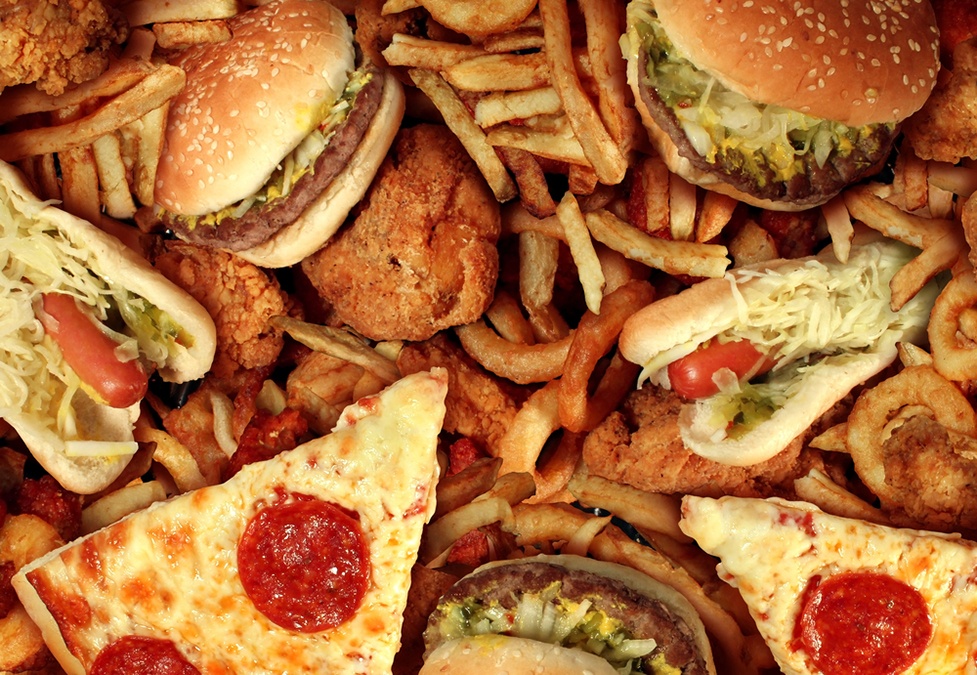 You’ve probably heard of several factors that contribute to sleep apnea, but food is very seldom discussed.
You’ve probably heard of several factors that contribute to sleep apnea, but food is very seldom discussed.
And we’re not talking obesity (big contributor to sleep apnea), these are not foods that necessarily cause weight gain.
Yet, one of them will make your sleep apnea twice as bad and the other two are little better.
In this study published in the American Journal of Lifestyle Medicine, a team of scientists recruited 104 people newly diagnosed with sleep apnea.
They first gave them a dietary survey to examine their typical consumption of various foods.
They then measured their symptoms against the standard apnea–hypopnea index to measure the severity of their sleep apnea.
This test records the number of apnea and hypopnea events you suffer per hour of sleep. Apnea is when your breathing stops completely, and hypopnea is when your breathing is much too shallow.
Your score on the apnea–hypopnea index is determined by dividing the number of these events by the number of hours you sleep.
A score of less than five is normal, between five and 15 is mild, between 15 and 30 is moderate, and from 30 upward indicates a severe condition.
Dietary fat was the biggest contributor to sleep apnea.
People whose diets consisted of more than 35% of fat scored an average of 36 on the apnea–hypopnea index, compared with the 18 scored by their peers, elevating the condition from low–moderate to severe.
Another dietary influence on sleep apnea severity was processed meats, with those eating it often scoring an average of 42 on the index and those who ate it rarely or never scoring only 28.
People who consumed more than two servings of daily dairy also suffered more, scoring 39 on average compared with the 26 of those who consumed less.
So, if you suffer from sleep apnea, try to cut fat from your diet (especially animal fat), processed meat and dairy for a few days and see what happens.

 Overcoming IBD
Overcoming IBD Multiple Sclerosis
Multiple Sclerosis Banishing Bronchitis
Banishing Bronchitis Gum Disease Gone
Gum Disease Gone Overcoming Onychomycosis
Overcoming Onychomycosis Neuropathy No More
Neuropathy No More The Prostate Protocol
The Prostate Protocol Brain Booster
Brain Booster
 Ironbound
Ironbound
 Solution for Shingles
Solution for Shingles
 The Bone Density Solution
The Bone Density Solution
 The Ultimate Healing Protocol
The Ultimate Healing Protocol
 The Parkinson's Protocol
The Parkinson's Protocol
 The Chronic Kidney Disease Solution
The Chronic Kidney Disease Solution
 Overthrowing Anxiety
Overthrowing Anxiety The Fatty Liver Solution
The Fatty Liver Solution The Hypothyroidism Solution
The Hypothyroidism Solution
 The End of Gout
The End of Gout The Blood Pressure Program
The Blood Pressure Program
 The Oxigized Cholesterol Strategy
The Oxigized Cholesterol Strategy
 Stop Snoring And Sleep Apnea Program
Stop Snoring And Sleep Apnea Program
 The Arthritis Strategy
The Arthritis Strategy The Vertigo & Dizziness Program
The Vertigo & Dizziness Program The 3-Step Diabetes Strategy
The 3-Step Diabetes Strategy Hemorrhoids Healing Protocol
Hemorrhoids Healing Protocol The Erectile Dysfunction Master
The Erectile Dysfunction Master Weight Loss Breeze
Weight Loss Breeze The IBS Program
The IBS Program The Insomnia Program
The Insomnia Program The Migraine and Headache Program
The Migraine and Headache Program The Neck Pain Solution
The Neck Pain Solution The Menopause Solution
The Menopause Solution The Ejaculation Master
The Ejaculation Master The TMJ Solution
The TMJ Solution The Acid Reflux Solution
The Acid Reflux Solution The Fibromyalgia Solution
The Fibromyalgia Solution The Psoriasis Strategy
The Psoriasis Strategy